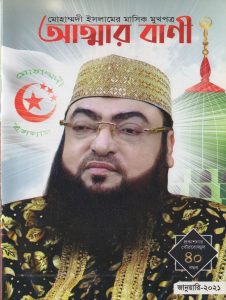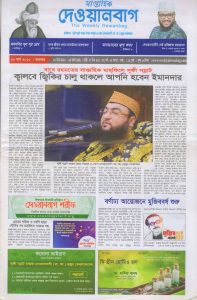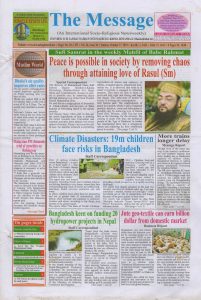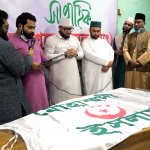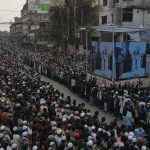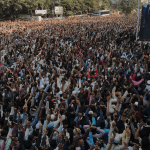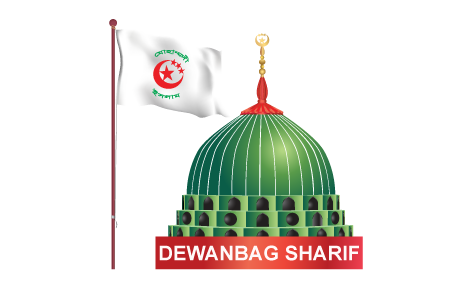The Extraordinary Life of Sufi Emperor Hazrat Dewanbagi (Rh.)
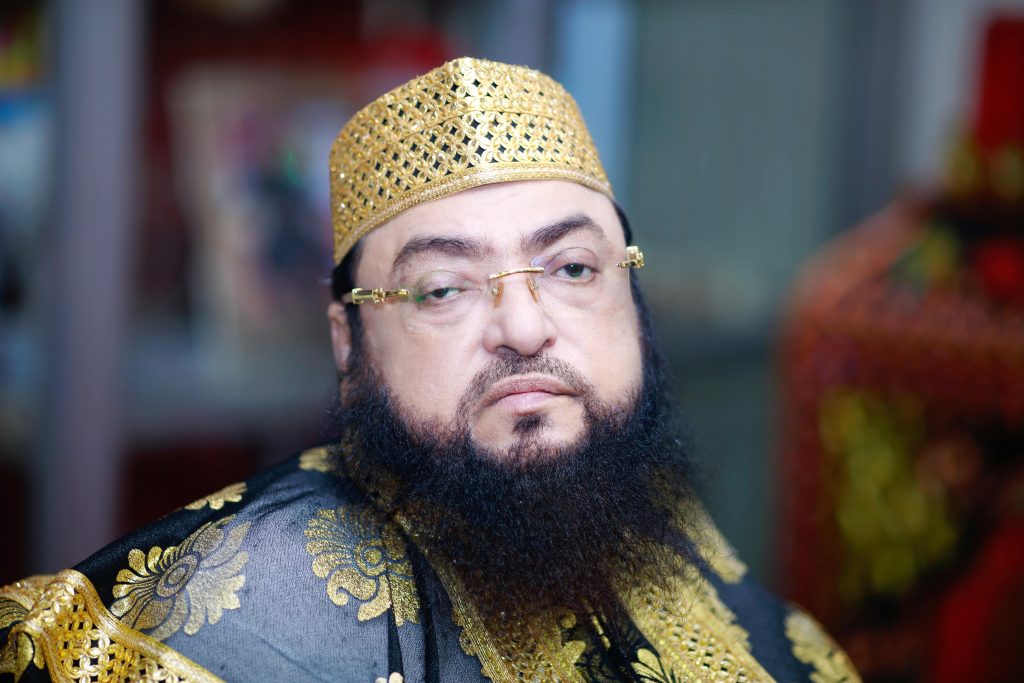
Hazrat Syed Mahbub-E-Khoda (Rh.)
Founder of Dewanbag Sharif
Personal information
at a glance
Sufi Emperor Hazrat Syed Mahbub-E-Khoda (Rh.) stands as a monumental figure in the history of Sufism and Bangladesh. Revered as the visionary founder of Dewanbag Sharif, his life story is a compelling blend of noble ancestry, profound scholarship, unwavering patriotism, and deep spiritual insight. He was not solely a spiritual guide but also a courageous freedom fighter, uniquely combining divine service with national duty. This article delves into the rich details of his inspiring life, chronicling his journey from birth through his multifaceted contributions and the enduring legacy he established with Dewanbag Sharif, an institution dedicated to the authentic propagation of Mohammadi Islam.
Biography of Sufi Samrat (Rh.)
Origins and Early Life: A Blessed Beginning
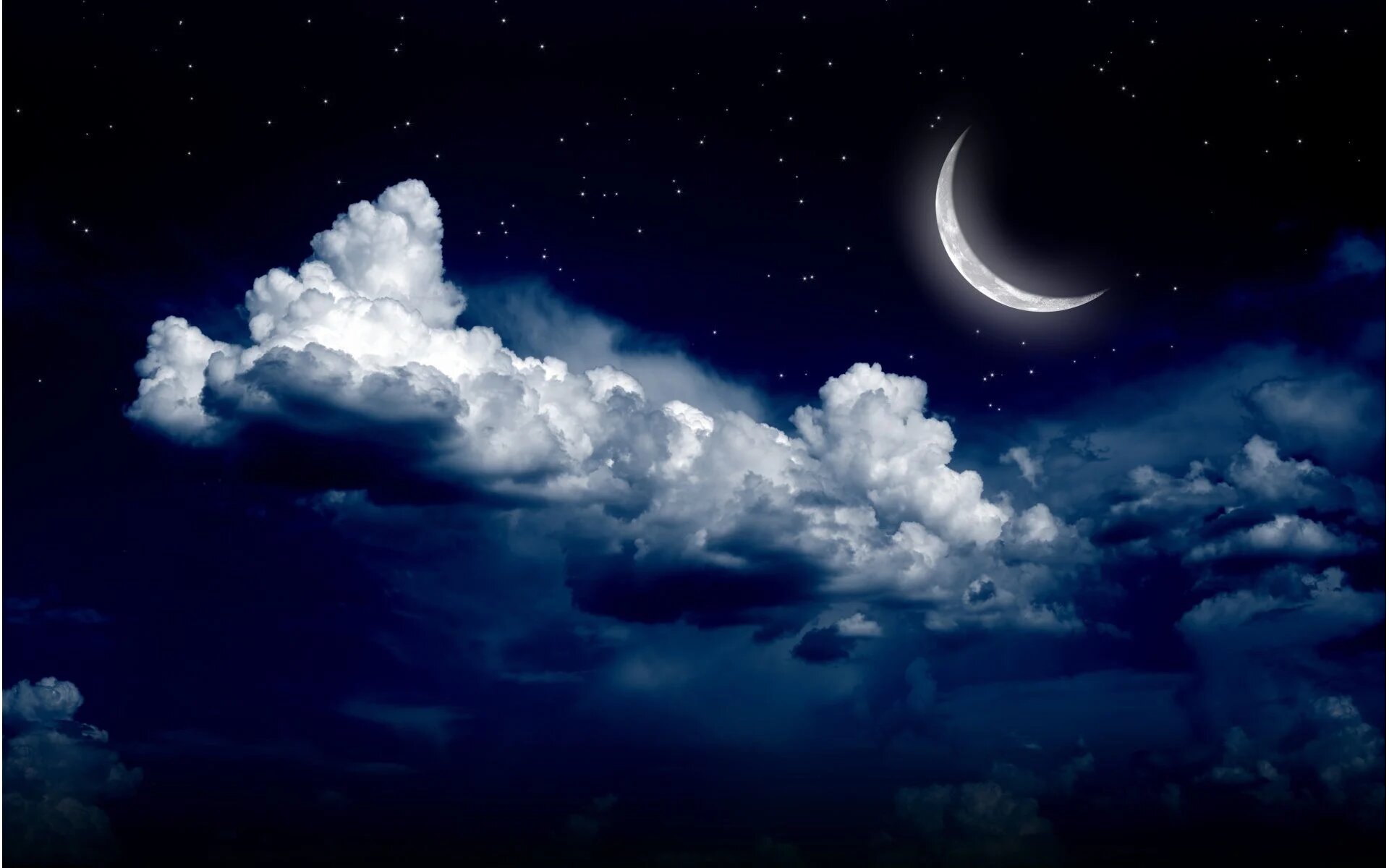
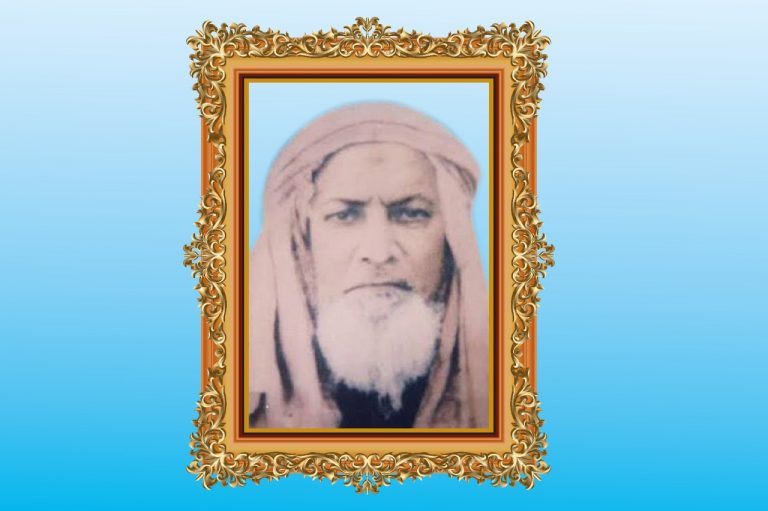
Naming Ceremony
His Aqiqah, the traditional naming ceremony, took place on the seventh day following his birth. Mawlana Tajul Islam, a prominent Islamic scholar of the era, presided over the ceremony and bestowed upon him the name “Mahabub E Khoda,” signifying “Beloved of Allah.” This meaningful name resonated powerfully with all present, who not only appreciated its depth but also remarked on his inherently adorable face as a clear reflection of divine favor.
Education and Formative Activism
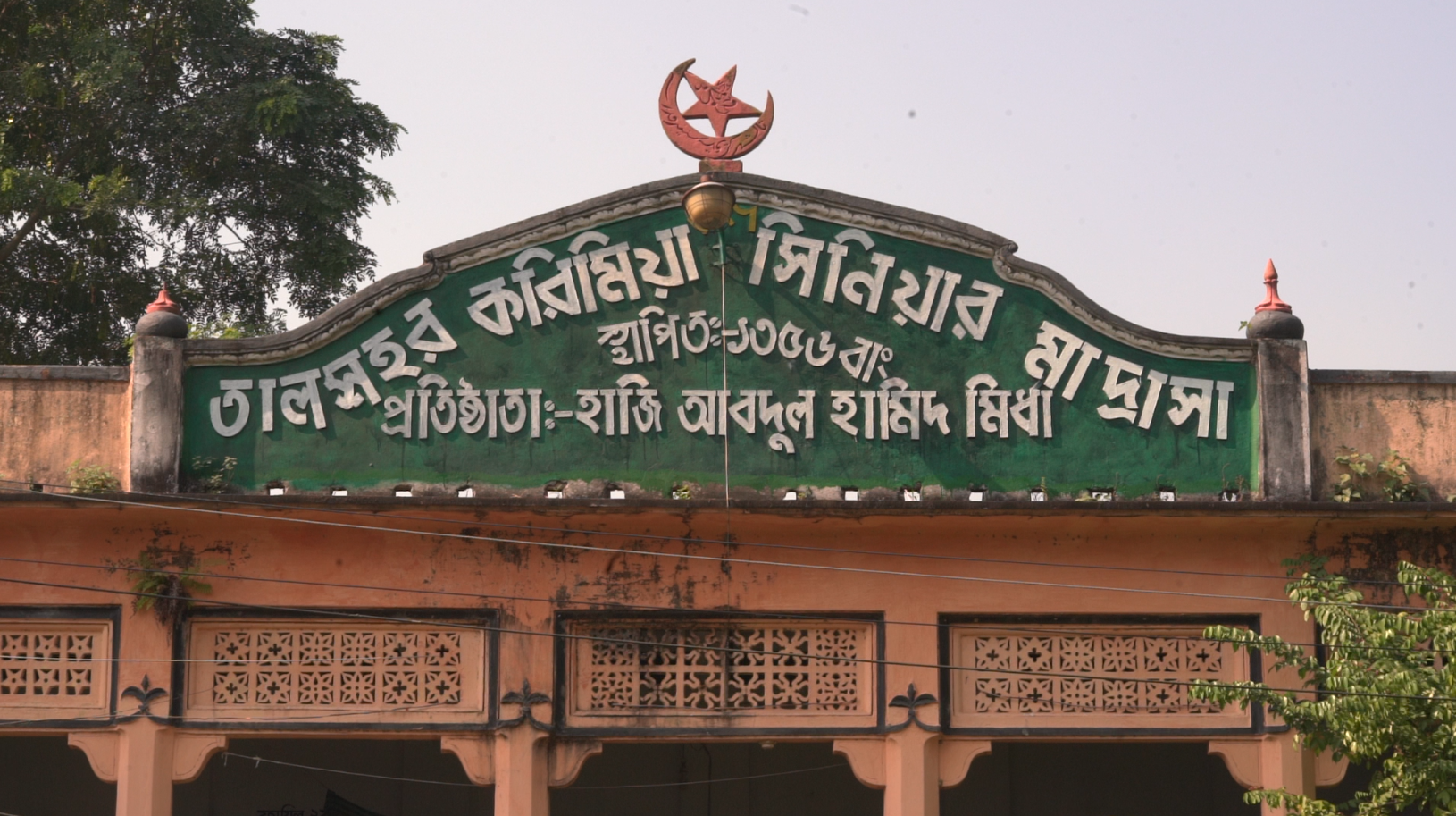
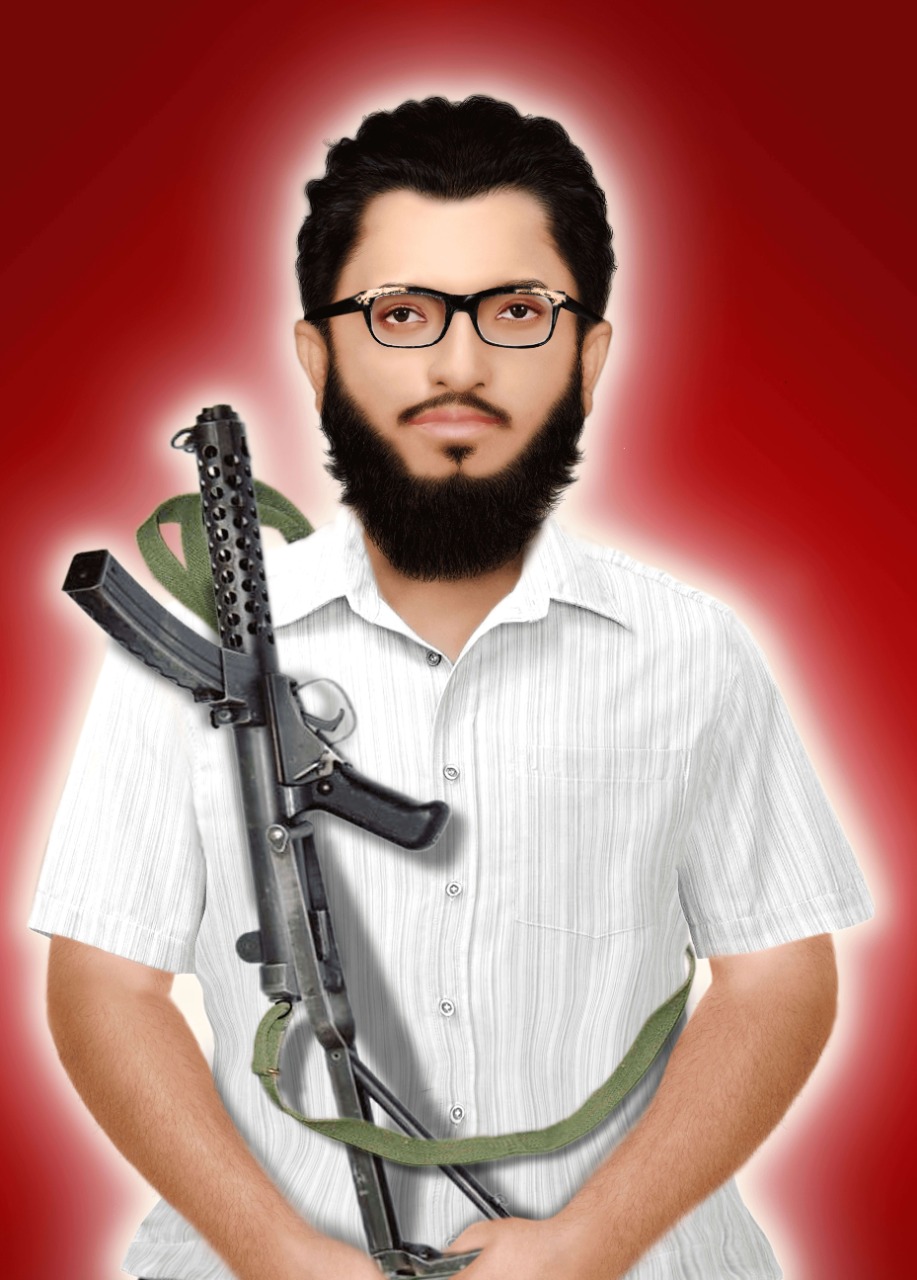
A Valiant Role in the Liberation War
When the Pakistani Army unleashed their brutal military operation against the innocent Bengali population on March 25, 1971, Sufi Emperor’s dedication to his people transitioned into courageous action. He promptly organized a volunteers’ team from the Students Movement Union to provide essential food and shelter to those displaced by the escalating conflict. Demonstrating unwavering commitment, he joined the freedom fighters’ camp in Brahmanbaria on April 11, 1971, accompanied by his 72 volunteers, to directly engage in the armed struggle for liberation. During the initial months of the war, he bravely commanded a troop of freedom fighters operating under Sector No. 3, actively participating in valiant confrontations with the occupation forces on multiple fronts. His responsibilities also included conducting the ‘attestation parade,’ the solemn oath-taking ceremony, at the sector number-3 headquarters located in Hejamura, India. As a scholarly freedom fighter, he provided crucial morale boosting and spiritual guidance, inspiring the young fighters by elucidating the profound significance of the liberation war through the lens of the Holy Quran and Hadith. Amidst the conflict, he also oversaw the establishment of three mosques in different locations within India.
Foretelling the Victory of the Liberation War
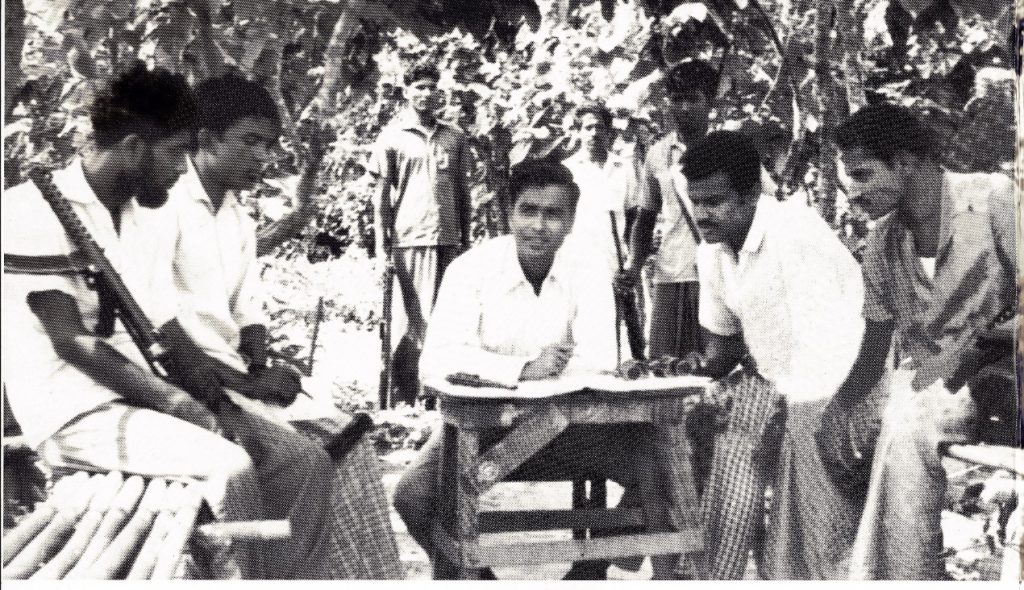
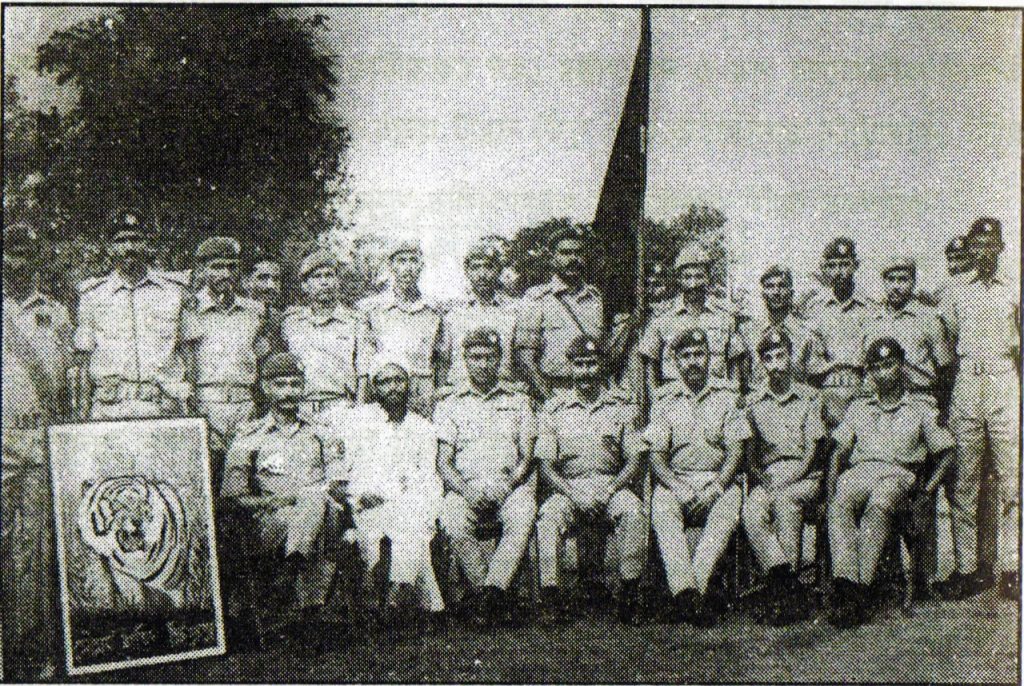
Spiritual Journey and the Birth of Dewanbag Sharif
Following the newly gained independence of Bangladesh, Sufi Emperor, recognized for his blend of scholarly knowledge and wartime valor, joined the recently formed 16 Bengal regiment of the Bangladesh Army in 1972. He served as a religious teacher, an appointment made at the request of K.M Shafiullah, the then commander of sector number-3, who would later rise to become the Chief of the Bangladesh Army. During his tenure in the army, he dedicated himself with unwavering focus to intensive research and study of the Holy Quran and Hadith. His insightful and eloquent addresses at various Tafsir Mahfils during this period quickly established his reputation within the cantonment as a deeply wise Mufasser (explanator of the Quran), positioning him as the leading religious teacher across all regiments of the then Bangladesh Army.
Knowing the Identity
of Murshid
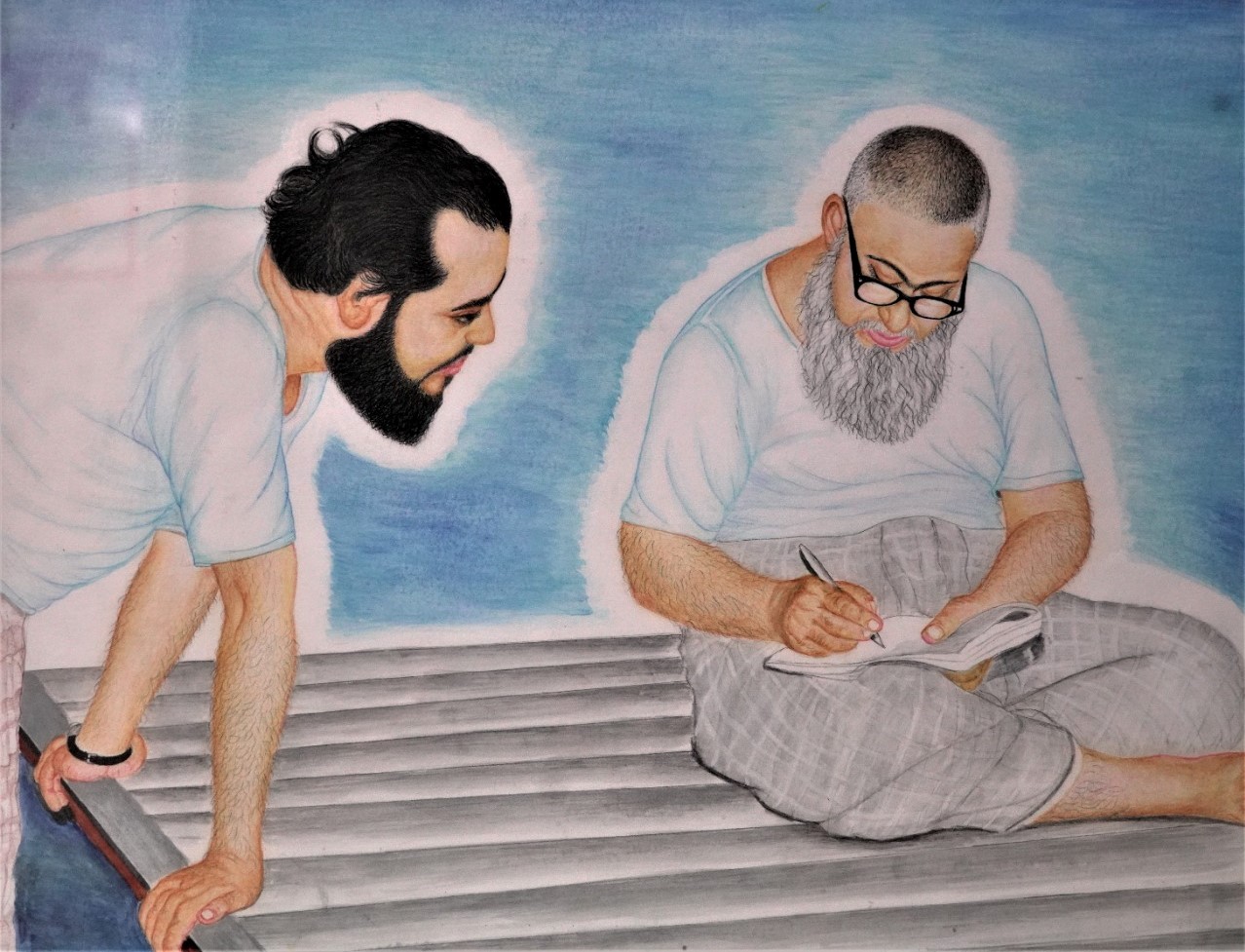
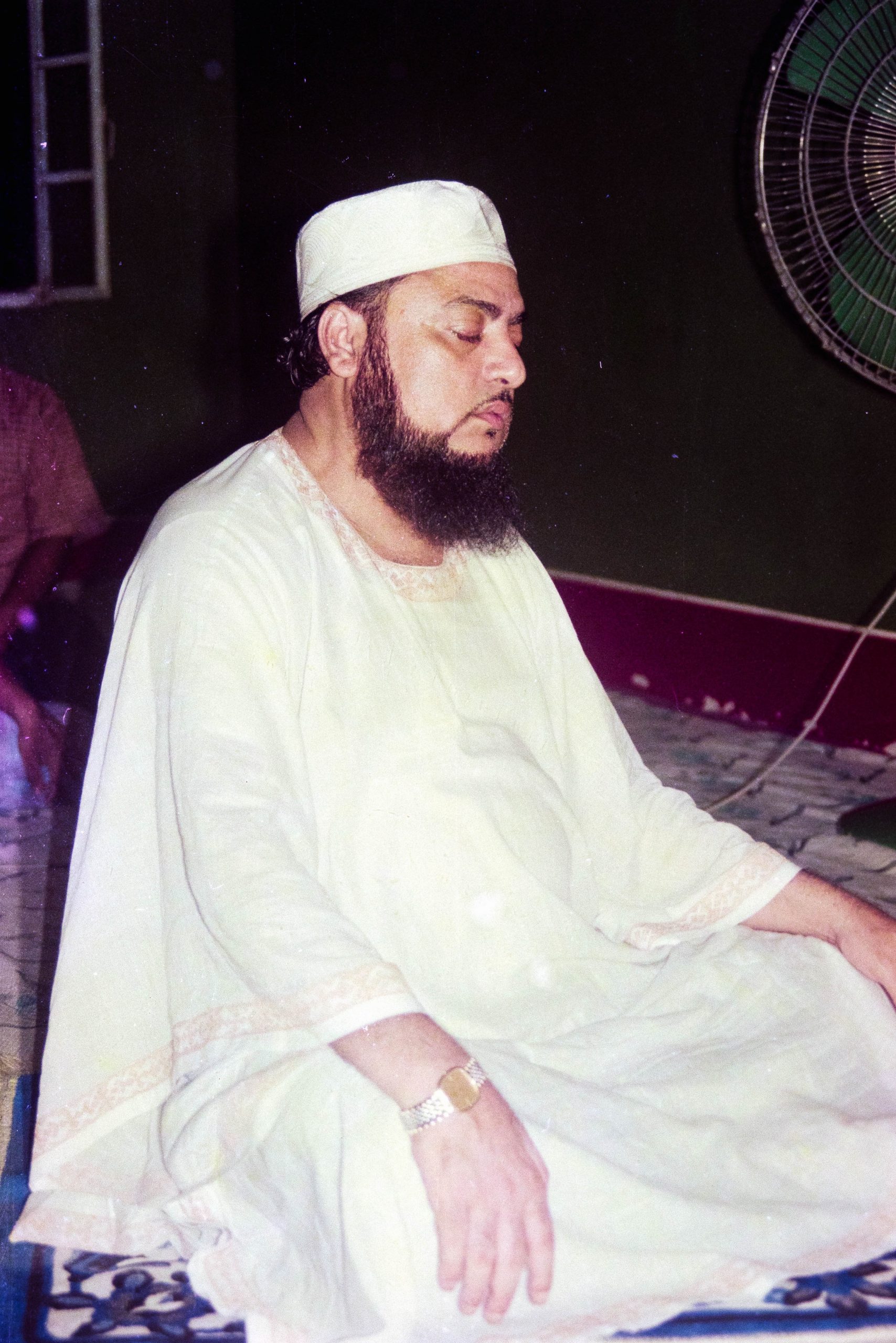
Resigning from Army Job and Settling in Murshid's Darbar
Responding to a direct directive from his Murshid, Sufi Emperor Hujur Qiblajan resigned from his esteemed role as a religious teacher in the Bangladesh Army in 1975 and permanently relocated to his Murshid’s Darbar. Subsequently, Syed Abul Fazal Sultan Ahmad Chandrapuri (Rh.) formally appointed Sufi Emperor Hazrat Shah Dewanbagi (Rh.) as his Chief Caliph. This significant appointment entrusted him with the crucial responsibilities of preaching the Tariqa and managing the affairs of the Darbar Sharif. During this time, he engaged in profound spiritual practices, ascending to higher states of spiritual realization. In his capacity as Chief Caliph and Chief of the Olama Mission, he undertook extensive tours across various districts of Bangladesh, delivering inspiring waz mahfils and actively propagating the Tariqa. These gatherings were often characterized by occurrences perceived as miracles, and thousands of attendees, deeply moved by his holy sermons, embraced initiation into the Tariqa. His powerful spiritual influence also led to numerous non-Muslims being inspired to embrace Islam after encountering him.
Accomplishing Infrastructural Development at Murshid's Darbar
Sufi Emperor Hujur Qiblajan after taking charge of his Murshid’s Darbar, at first initiated various development activities.
- He established a Madrasa and an Orphanage at Chandrapara, Faridpur in 1980.
- He also established a high school, a hospital, and a post office in Chandrapara in 1982.
- In the same year, to facilitate people’s movement in Chandrapara, he developed roads and streets and arranged electrification for the area.
- For research work and widespread preachment of Tariqa, he established ‘Sultanaia Mojaddedia Research Academy’ in 1983.
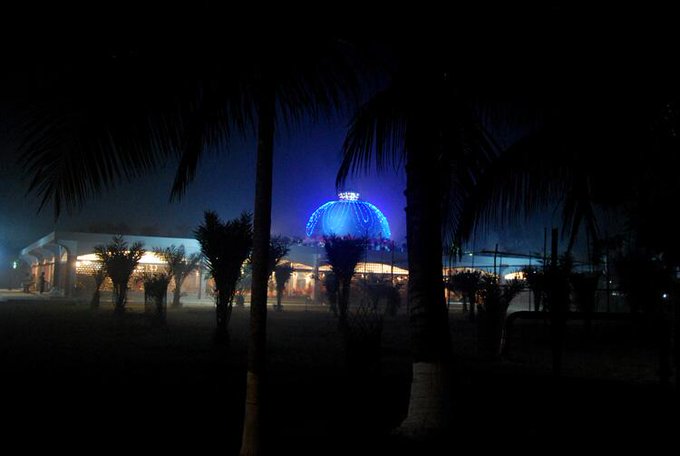

Writing Religious Books
Sufi Emperor Hujur Qiblajan, following the direction of his Murshid Imam Shah Chandrapuri (Rh.), wrote a number of books correcting the misconceptions prevailing in Islam for a long time. They are-
- Eid Moon-Sighting Problem & Solution.
- The solution to Ferka Problem.
- Mother’s Right on Her Child.
- Islamic Laws on Grave & Shrine.
- The Easiest Way to Get Closer to Allah.
- Sultania Khabnama.
- Which is the Way towards Peace?
- Which is the Way towards Salvation?
- What is the Way towards Allah?
- Mohammadi Islam in the Conspiracy of Yazid.
- Biography of Imam Syed Abul Fazal Sultan Ahmad (Rh.)
- The Groundbreaking Religious Reforms by Sufi Emperor.
- Sufi Emperor to Reveal the Reality of the Prophet of the World: Was the Prophet(PBUH) Really Poor?
- Sufi Emperor to Reveal the Reality of Allah: Can’t Allah Really Be Seen?
- Tafsir E Sufi Emperor (8 volumes).
Getting Assigned as Reformer before the Demise of Imam Shah Chandrapuri (Rh.)
Sufi Emperor Hazrat Shah Dewanbagi (Rh.) Hujur Qiblajan got assigned as the Reformer of Religion by Allah on 16th December, 1983. A few months after his receiving the charge of religious Reformer, Imam Shah Chandrapuri (Rh.) passed away on 28th March, 1984. After the demise of his Murshid, Sufi Emperor Hujur Qiblajan stayed in the Chandrapara Darbar Sharif for the next one year. Finally, he came back to Dhaka to preach Mohammadi Islam in a widespread manner.
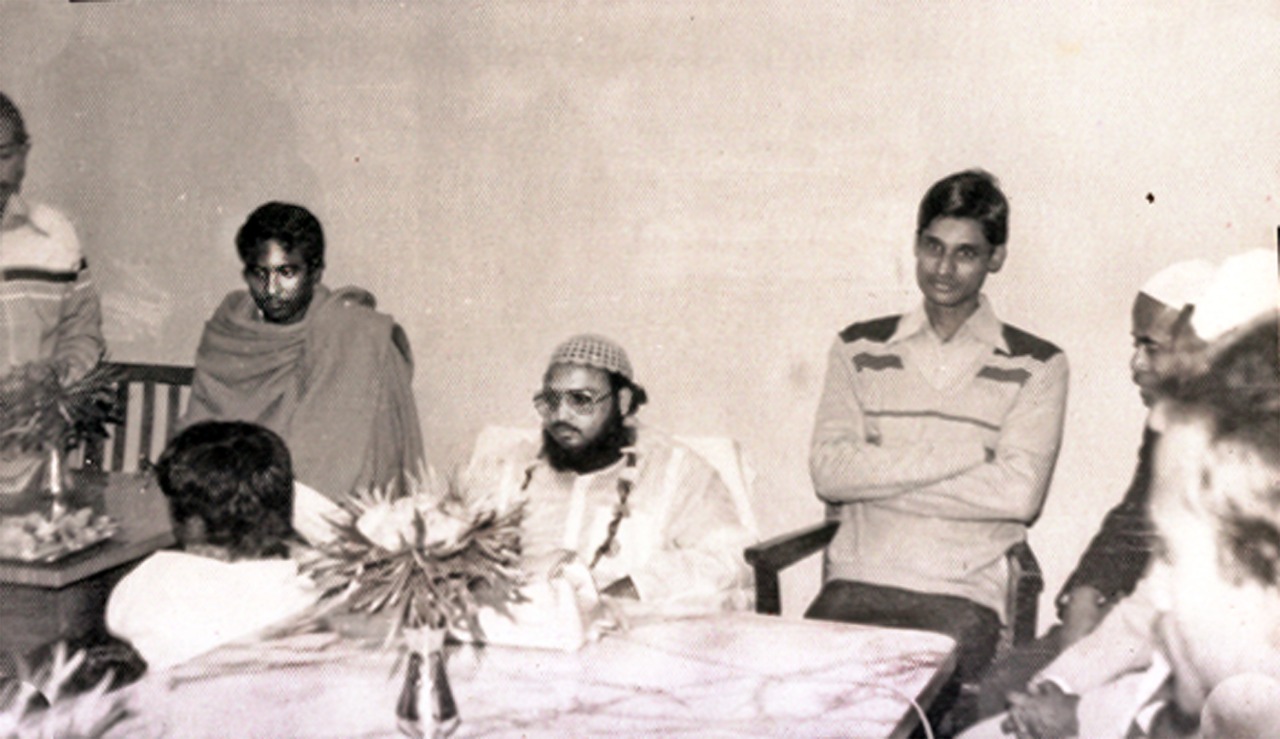
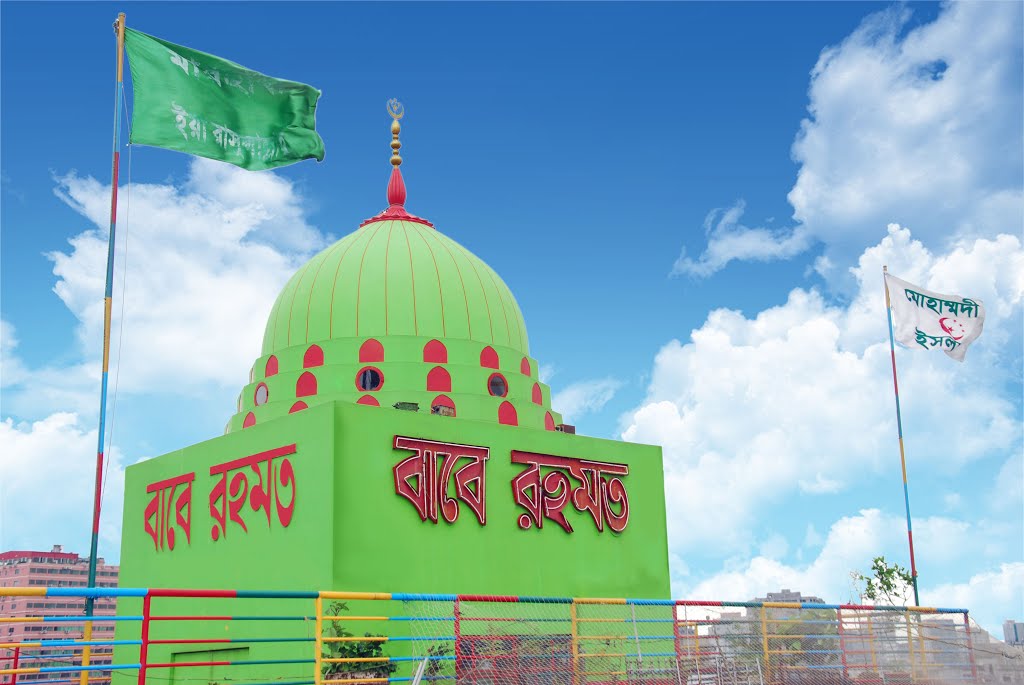
Settling in Dhaka and Establishing Darbar Sharif
Sufi Emperor Shah Dewanbagi (Rh.) came to Dhaka on March 29, 1985 from Chandrapara Darbar Sharif to preach Mohammadi Islam more extensively. On his arrival, his followers and well-wishers in Dhaka gave him a warm reception. The next day, on March 30, 1985, Sufi Emperor observed Urs Mubarak commemorate the first death anniversary of his Murshid Imam Shah Chandrapuri (Rh.) at the residence of Asheqe Rasul Md. Shafiuddin 98 Arambag, Motijheel, Dhaka. In this way, Sufi Emperor Hujur Qiblajan started his new mission of preaching Mohammadi Islam worldwide. For this, at first, he temporarily established a central office at 154 Arambag, Dhaka.
Formulating Wazifa
Sufi Emperor Hujur Qiblajan formulated a Wazifa (daily activities of a disciple) to implement the spiritual teaching and ideals of the Prophet (PBUH) in society in May 1985. By following the activities of his Wazifa, a man can bear the ideal character of Hazrat Muhammad (PBUH) in him and can communicate with Allah and the Prophet (PBUH) as well.
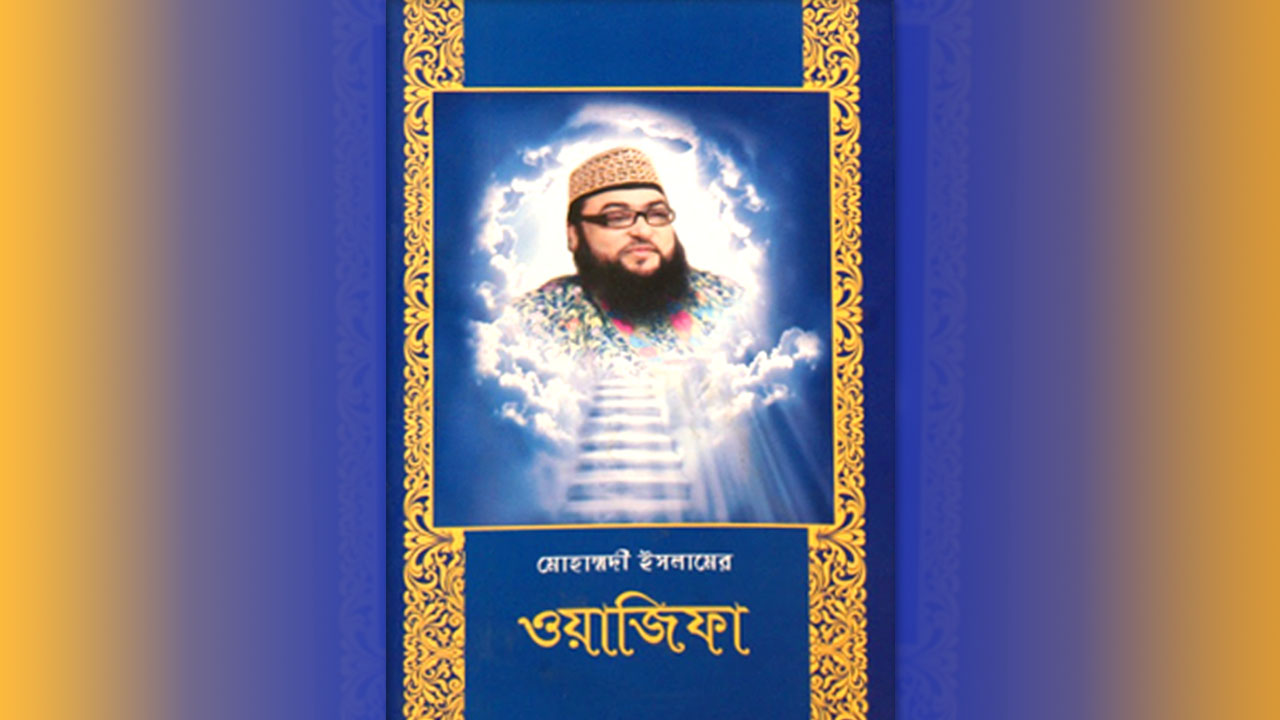
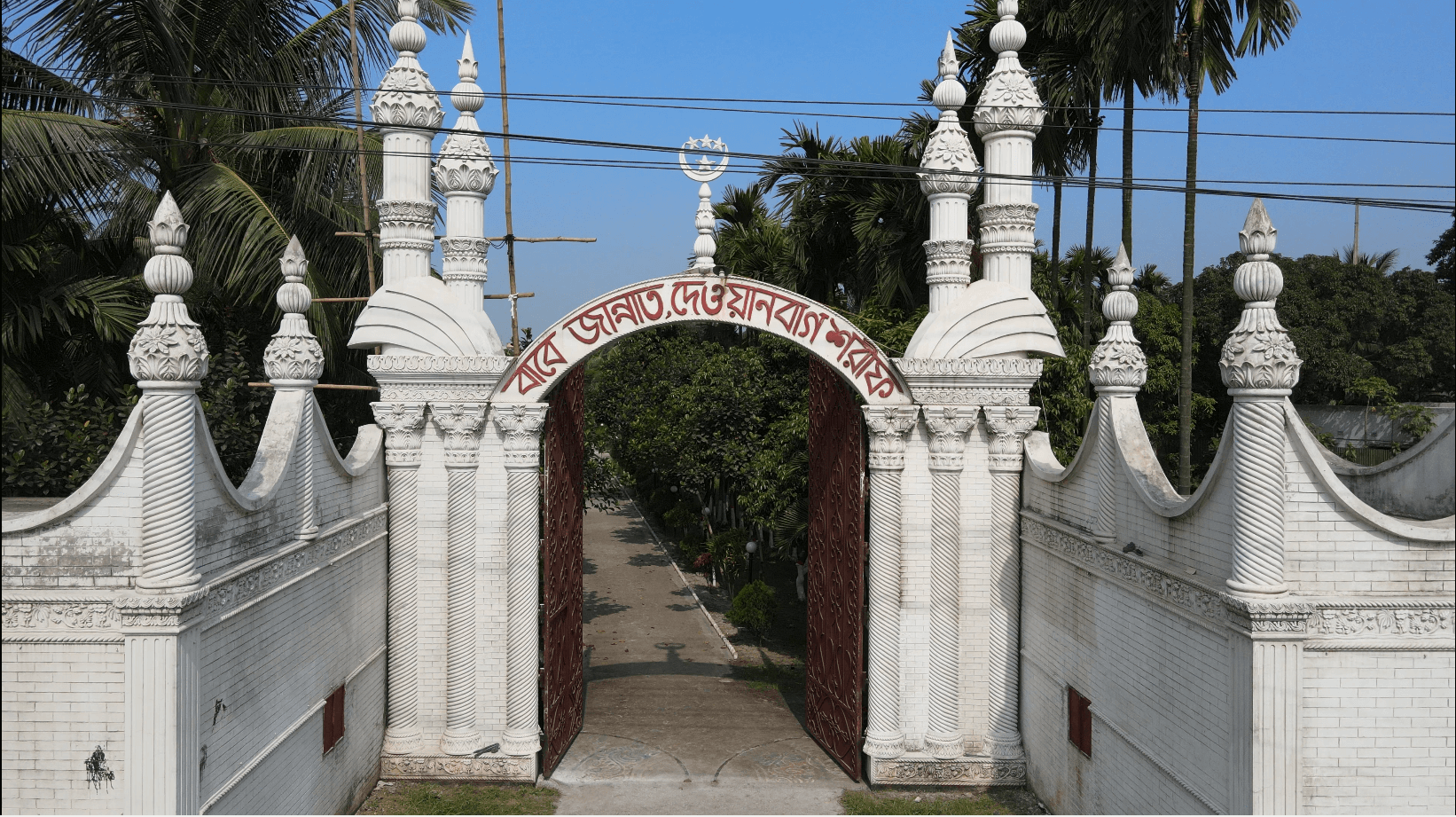
Founding Babe Jannat, Dewanbag Sharif
On the day of holy Ashura, the great Reformer, Reviver of Mohammadi Islam Sufi Emperor Hazrat Shah Dewanbagi (Rh.) Hujur Qiblajan founded Babe Jannat, Dewanbag Sharif in Narayanganj on 10th Muharram, 1407 Hijri, 26 September, 1985, 9 Ashwin, Bengali year 1392, Thursday. As the Darbar Sharif is situated in the village named ‘Dewanbag’, Sufi Emperor is well-known as Dewanbagi Hujur all over the world.
Founding Central Darbar Sharif
Sufi Emperor Shah Dewanbagi (Rh.) Hujur Qiblajan, after abolishing the temporary office at 154 Arambag, founded Babe Rahamat, Dewanbag Sharif at 147 Arambag, Motijheel, Dhaka in 1992 as the central office. From then up until his death, he was living here and preached Mohammadi Islam around the country and beyond.
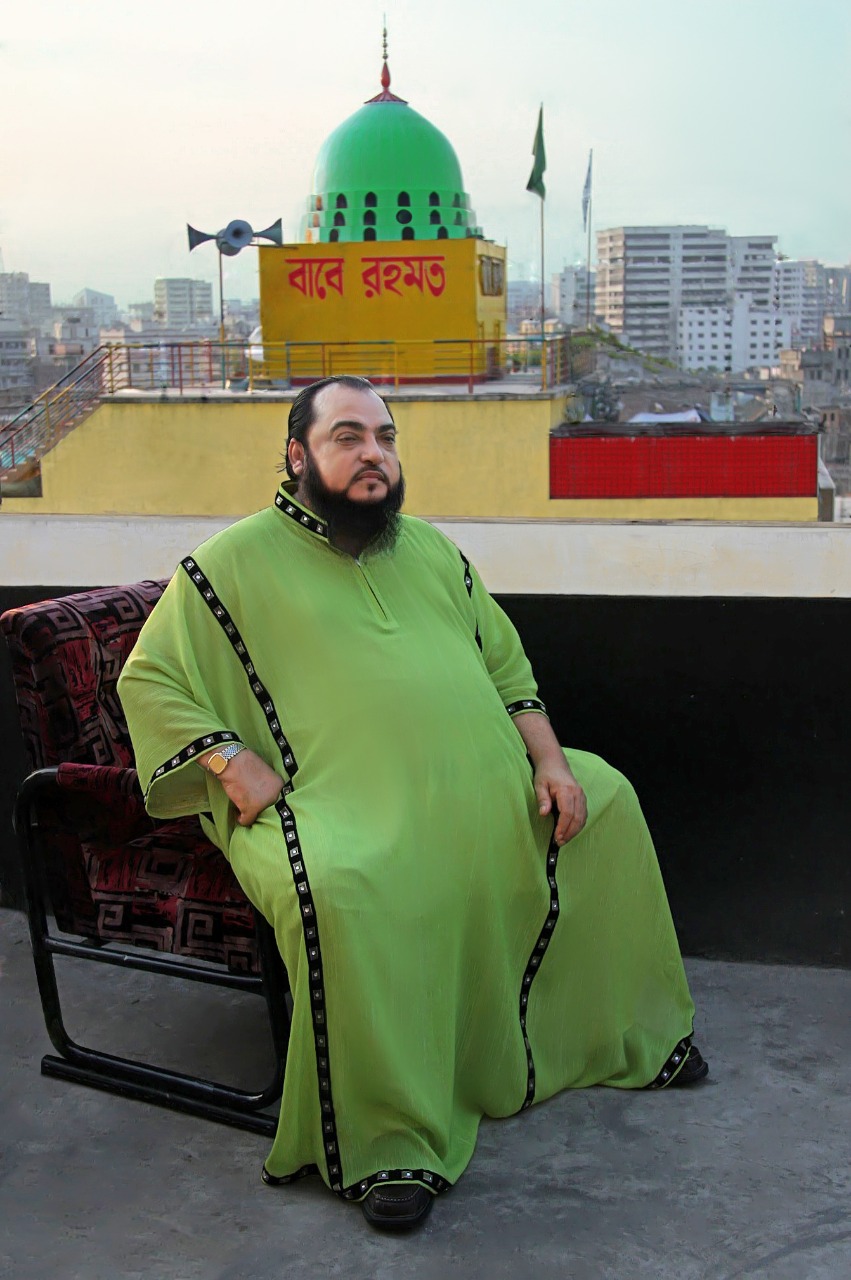
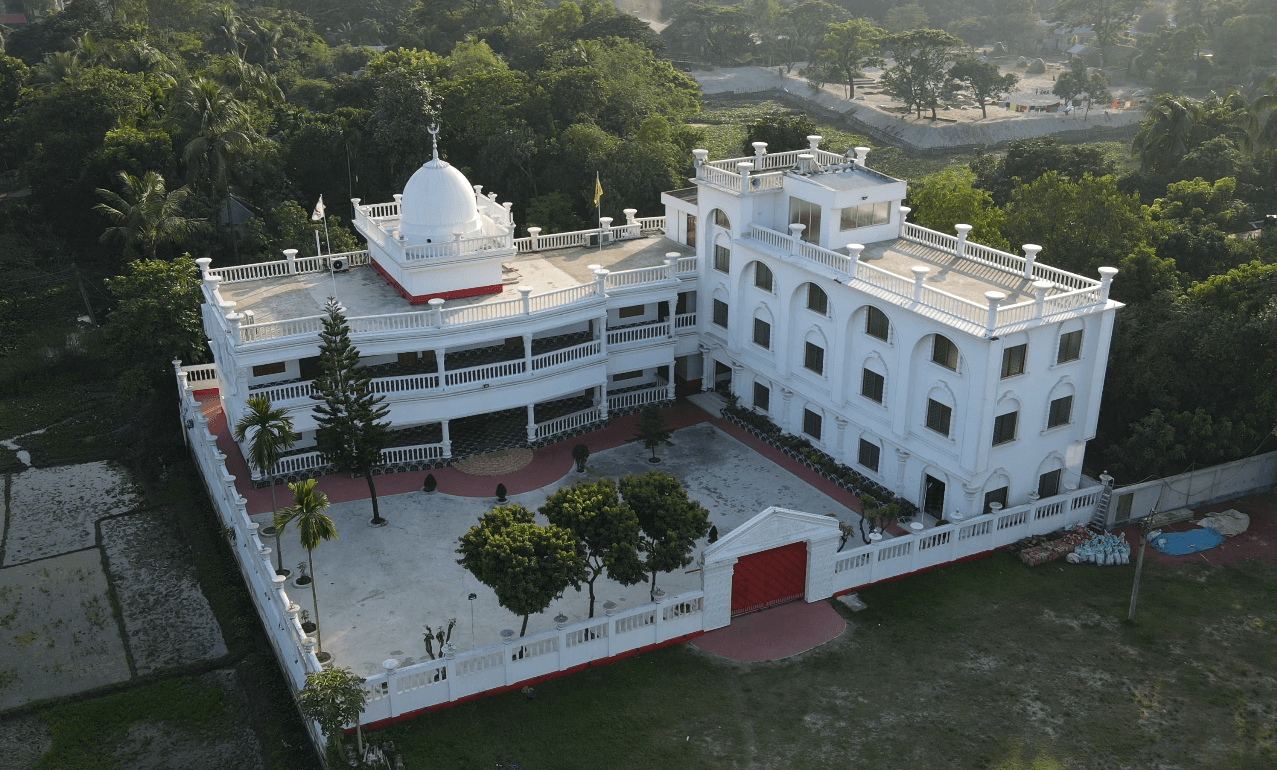
Founding Other Darbar Sharif
In order to facilitate the preaching Mohammadi Islam, Sufi Emperor Hujur Qiblajan founded 11 more Darabar Sharif in different districts of Bangladesh. They are-
- Babe Jannat, Dewanbag Sharif in Narayanganj in 1985.
- Babe Madina, Dewanbag Sharif at Kamalapur, Motijheel, Dhaka in 1987.
- Babe Rahmat, Dewanbag Sharif at 147 Arambag, Motijheel, Dhaka in 1992.
- Babe Najat, Dewanbag Sharif at Satdargah, Pirgacha thana, Rangpur district in1995.
- Babe Barkat, Dewanbag Sharif at Trishal thana, Mymensingh district in 1998.
- Babe Niyamat, Dewanbag Sharif at Aram Para, Chuadanga in 2006.
- Babe Morshed, Dewanbag Sharif at Bahadurpur, Ashuganj thana, Brahmanbaria in 2008.
- Babe Ferdous, Dewanbag Sharif at Maghbazar, Ramna, Dhaka in 2009.
- Babe Magfirat, Dewanbag Sharif at Bhatihari, Chattogram in 2010.
- Babe Jannatul Mawa, Dewanbag Sharif at Chayabithi, Gazipur in 2010.
- Babe Noor, Dewanbag Sharif at Nowdapara, Rajshahi in 2010.
Sufi Emperor also established more than a thousand mosques and Khankah Sharif in different districts of the country and overseas in UAE, Saudi Arabia, India, Japan, Pakistan, Sweden, Bahrain, Qatar, Greece, Australia, South Africa, Malaysia, Italy, Singapore, Cyprus, Denmark, Kuwait, France, South Korea, UK, USA. With a view to preaching the ideals of the Prophet Muhammad (PBUH) worldwide, he has formed World Ashek-e-Rasul Organisation and Ashek-e-Rasul Parishad.
Establishing Islamic & Tasawwuf based Research Center
For Islamic research, Sufi Emperor Hujur Qiblajan established some organizations. They are-
- Sufi Foundation Bangladesh in 1992.
- Al Quran Research Center in 1998.
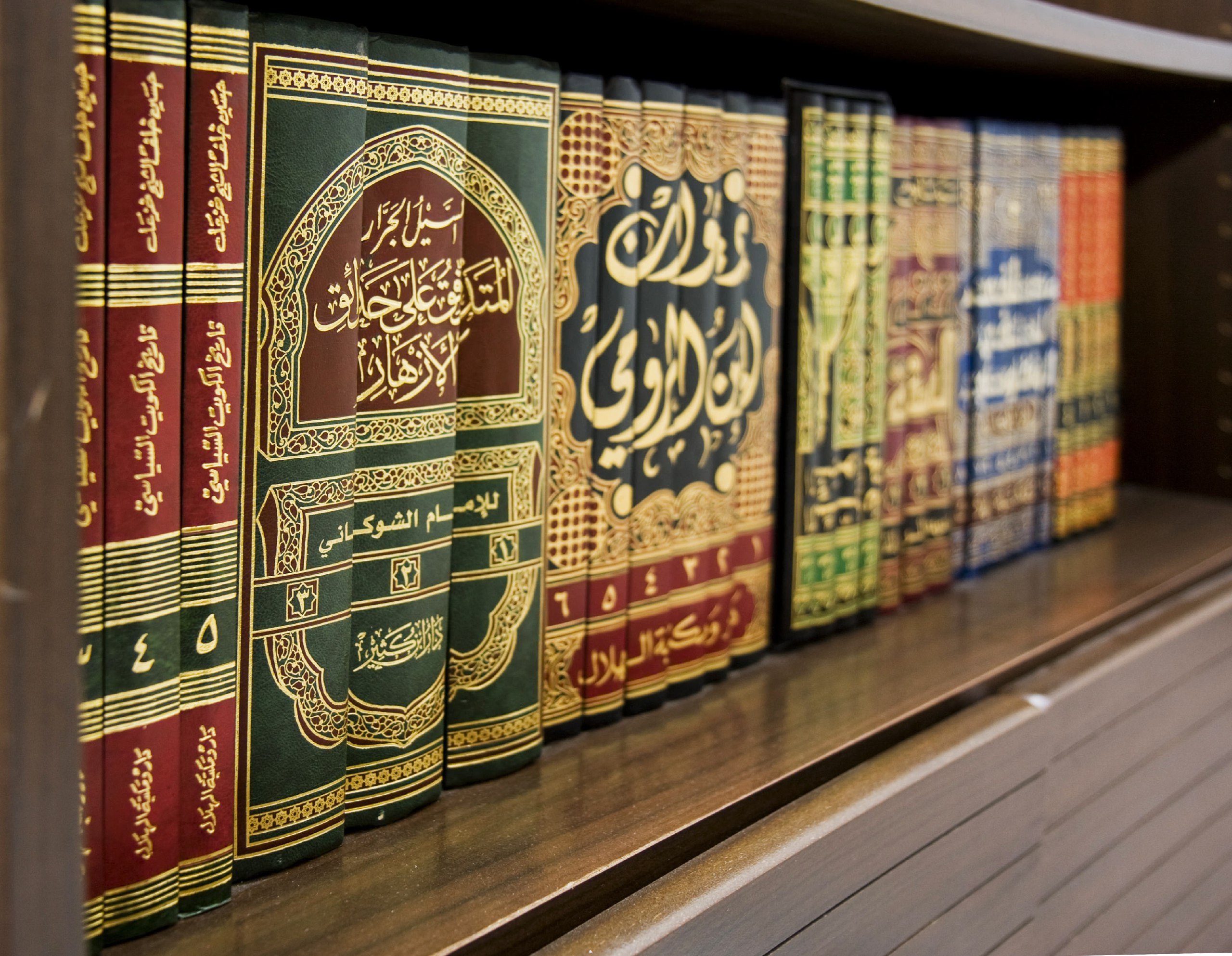
Reunion with the Almighty Allah
This great man passed away to have a reunion with the Great Lord Allah (s.m.) on 28 December 2020,13 Poush 1427 Bangla, 13 Jamadiul Awal 1442 Hijri, Monday at 6:48 a.m leaving behind his family and more than three crores of his devotees and followers. His Namaz-e-Janaza (funereal prayer) was held the next day after Asr waqt (time) in the presence of lakhs of his followers. Before the funereal prayer, he was offered a guard of honour on behalf of the nation for his valiant contribution to the Liberation War of Bangladesh. It is to be noted that just a day before his demise he made a will in the presence of his family members to administer Mohammadi Islam properly. At the beginning of the funereal prayer, his four sons readout that holy will to the lakhs of his followers gathered there. After the end of the funereal prayer, he was buried in the Babe Madina Darbar Sharif constructed by himself situated in South Kamalapur, Dhaka where his wife (Kutubul Aktab, Khatune Jannat) Hazrat Hamida Begum (Rh.) had been buried.
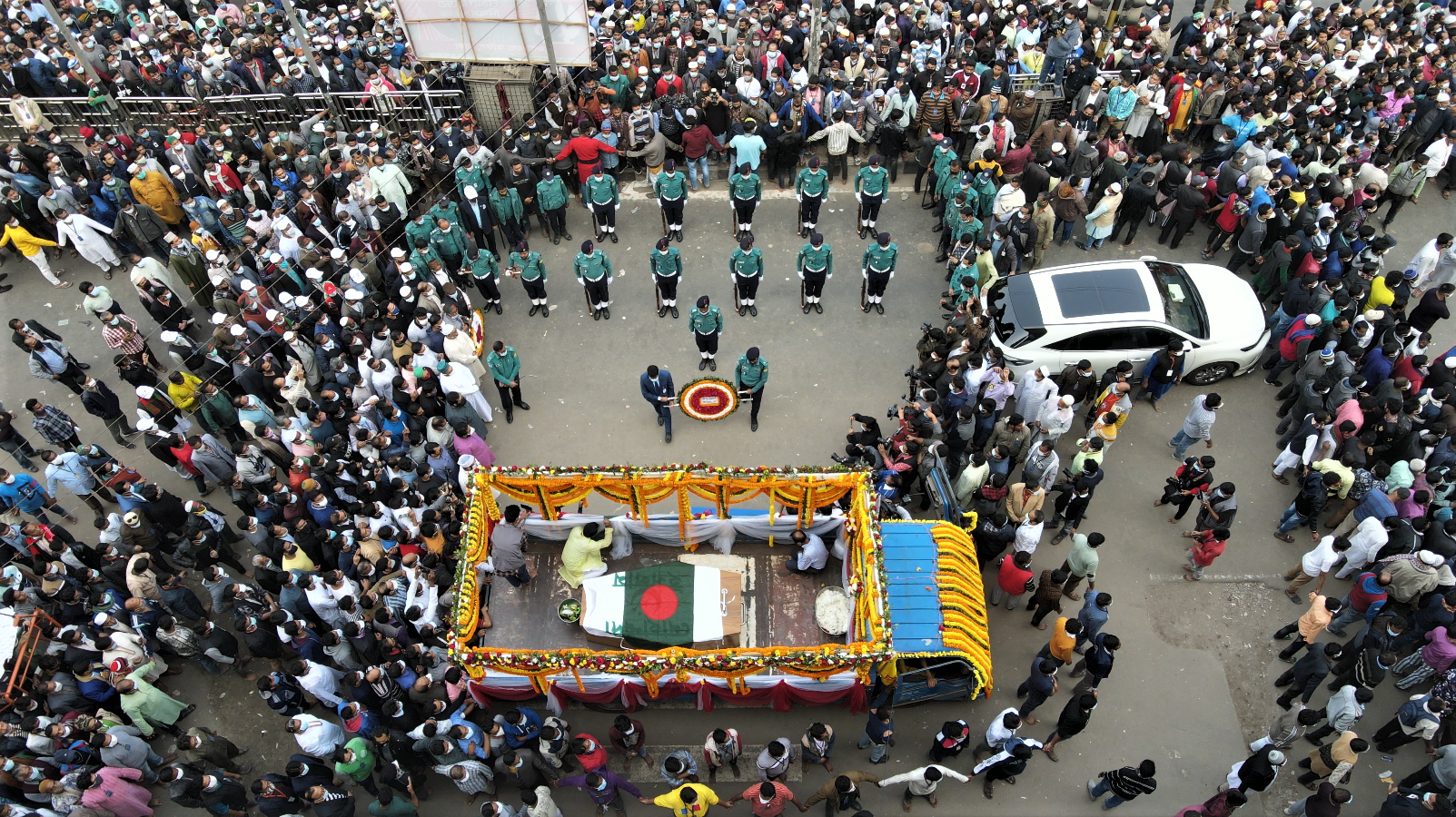
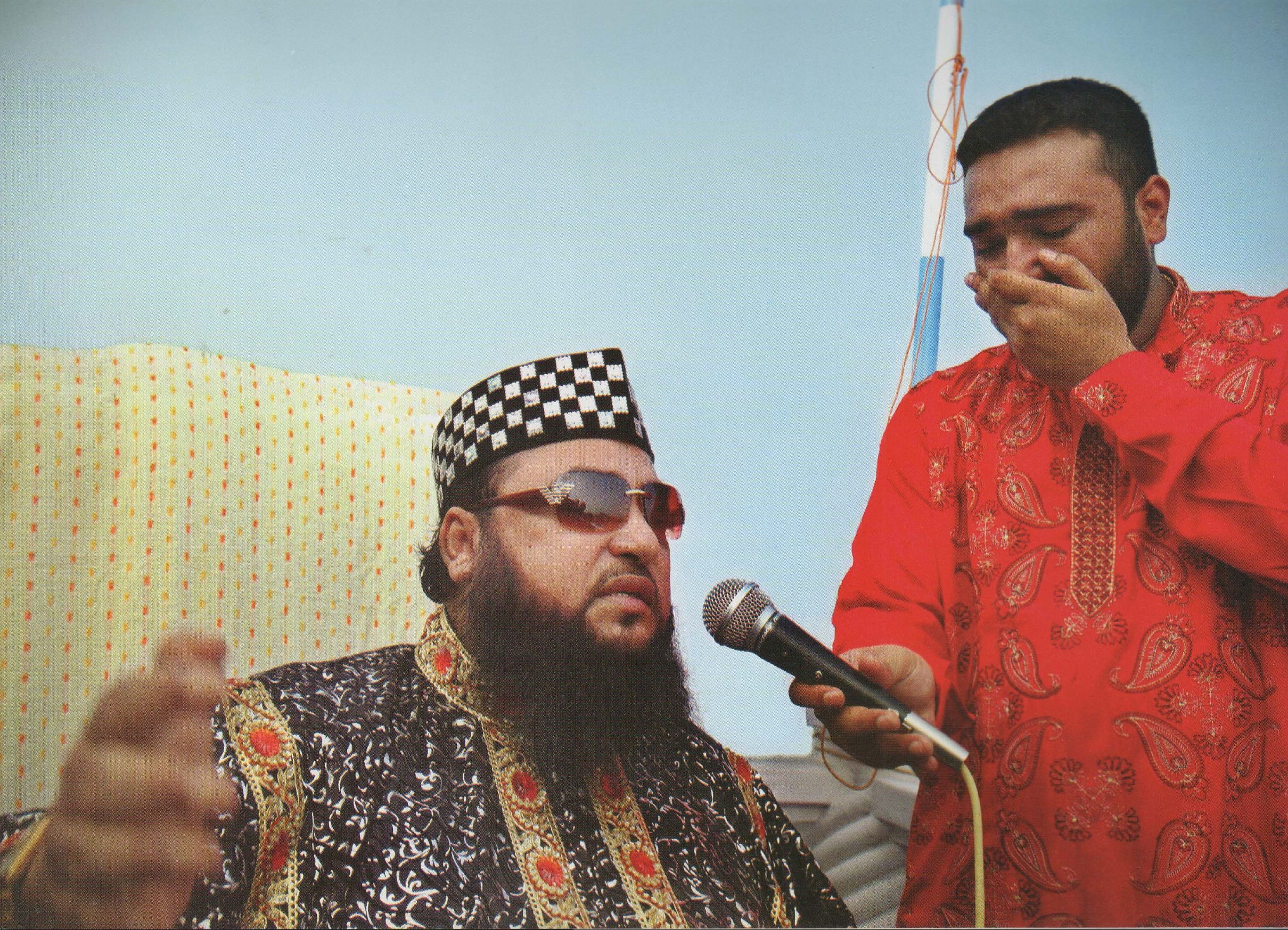
The holy Osyoth (Will) by Sufi Emperor Dewanbagi (Rh.)
The Founder of Dewanbag Sharif, Great Reformer, the Reviver of Mohammadi Islam, Imam of the Era, Successor and Friend of the Prophets and Messengers, Reward given by Allah: Reflection of Dewanbagi in the full moon Sufi Emperor Hazrat Syed Mahabub E Khoda Dewanbagi (Rh.) passed away on 28 December 2020, Monday. For the proper administration of Mohammadi Islam, he made a “Will” with some important guidelines in the presence of his four sons, two daughters, his wife, two daughters-in-law and his attendants on 27 December 2020, Sunday. To know about the holy Osyoth (will) of Sufi Samrat Dewanbagi (Rh.)
To read the full Osyoth please click here.
